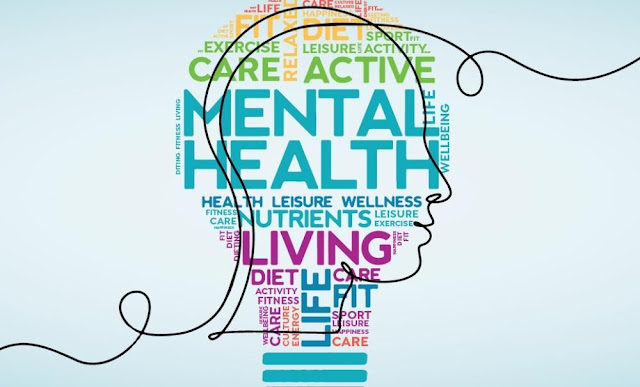In the hustle and bustle of contemporary life, achieving equilibrium between mental and physical well-being has become imperative. This article seeks to delve into the intricate connection between mental health and physical fitness, shedding light on how a harmonious approach can significantly contribute to overall wellness.
Understanding the Mind-Body Connection
In
recent years, scientific research has underscored the profound link between
mental health and physical fitness. The brain and body are not isolated
entities; instead, they function collaboratively in a delicate dance. The
release of neurotransmitters during physical activity not only enhances mood
but also contributes to a more robust and resilient mental state.
The Benefits of Physical Activity on Mental Health
Engaging in regular physical activity has been proven to be a
potent antidote to various mental health challenges. The release of endorphins,
often referred to as "feel-good" hormones, acts as a natural mood
enhancer. Additionally, the reduction in stress hormones and the promotion of
better sleep through exercise contribute to a more balanced mental state.
Mindful Movement Practices
Mindfulness-based exercises, such as yoga and tai chi, go beyond the physical
benefits of conventional workouts. These practices emphasize the integration of
breath and movement, fostering a heightened sense of awareness and focus. By
incorporating mindful movement into a fitness routine, individuals can
experience not only physical strength but also mental clarity and tranquility.
Creating a Balanced Fitness Routine
Developing a well-rounded fitness routine is essential for addressing both
physical and mental health needs. Incorporating cardiovascular exercises,
strength training, and flexibility exercises ensures a comprehensive approach.
Tailoring the routine to individual preferences not only promotes consistency
but also enhances the overall experience of physical fitness.
Community and Social Connections
Recognizing
the social aspect of physical activities adds another layer to the synergy
between mind and body. Group exercises, team sports, or fitness classes not
only provide physical benefits but also foster a sense of community and
support. The shared experience of pursuing fitness goals with others can create
a positive feedback loop, enhancing both mental and physical well-being.
Nutrition and Mental Wellness
The connection between nutrition and mental health is a crucial aspect of holistic well-being. A well-balanced diet rich in essential nutrients supports brain function and contributes to emotional stability. Exploring the impact of nutrition on mental wellness underscores the importance of viewing health as an integrated whole.
Overcoming Mental Health Challenges Through Fitness
Numerous inspiring stories and case studies attest to the
transformative power of incorporating physical fitness into mental health
recovery. Whether overcoming anxiety, depression, or other challenges,
individuals who integrate regular exercise into their lives often report
enhanced resilience, improved self-esteem, and a renewed sense of purpose.
Mindful Practices Beyond Exercise
Extending the conversation beyond traditional exercise, incorporating
mindfulness practices such as meditation and deep breathing techniques further
nurtures the mind-body connection. These practices offer tools for managing
stress, promoting relaxation, and cultivating a positive mental outlook.
In conclusion, the symbiotic relationship
between mental health and physical fitness is a dynamic force that should not
be underestimated. Embracing a holistic approach that encompasses both mind and
body is not merely a lifestyle choice but a fundamental investment in one's
health and happiness. By understanding and nurturing this intricate connection,
individuals can cultivate resilience, reduce stress, and embark on a journey
toward a more fulfilling and balanced life. The path to mind and body harmony is
an ongoing exploration, offering continuous opportunities for growth and
well-being.










0 Comments